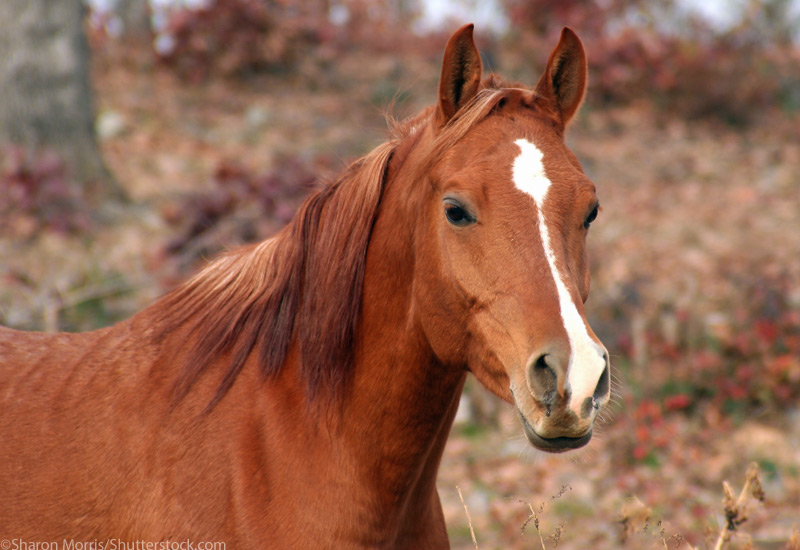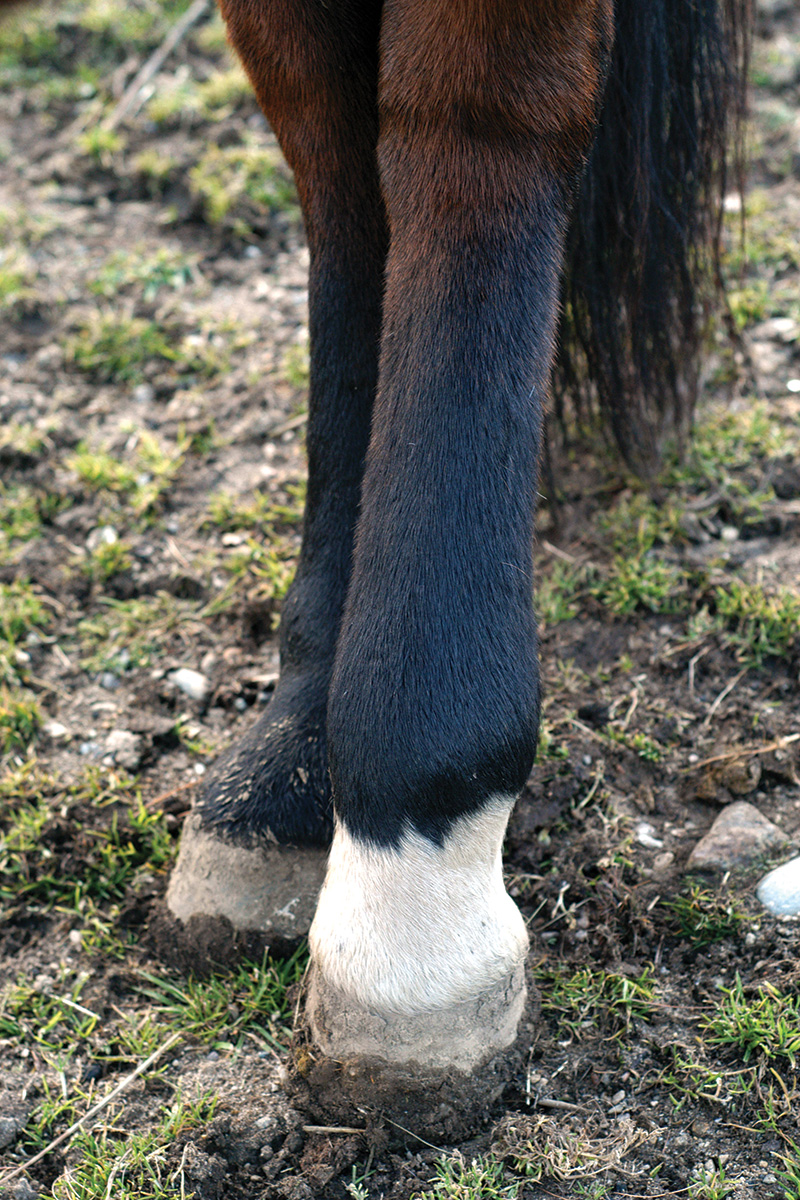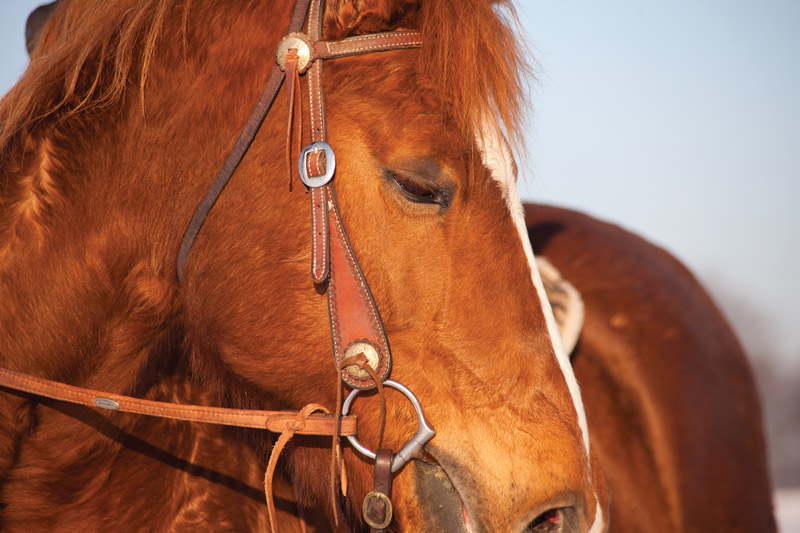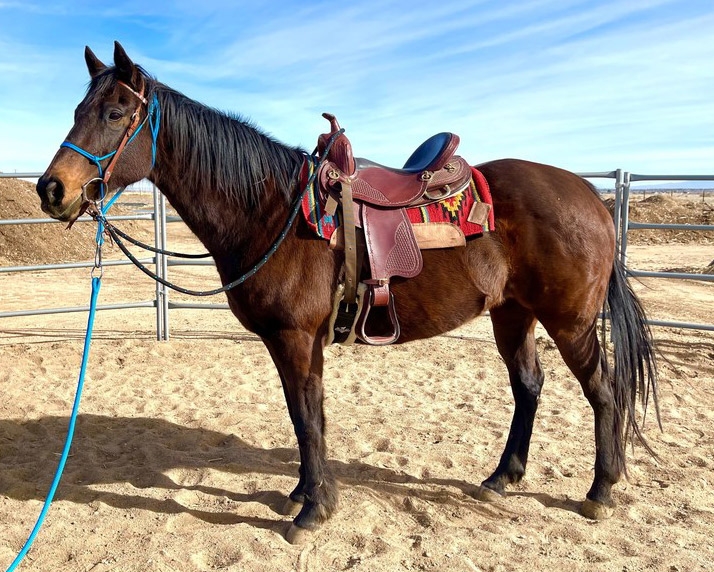As fresh, crisp, fall air starts to fill the barn and trail ride vistas turn into paint pallets of colorful foliage, a vet visit may be the farthest thing from your mind. After all, your horse had his spring vaccines months ago. He should be good for the whole year, right? Turns out, in some cases, you should be thinking about fall vaccines, too.

Why would a horse need a vaccine twice yearly? Most equine vaccines are manufactured so that they provide twelve months of protection. However, the amount of antibodies that your horse produces in response to the vaccine depletes over time. How quickly your horse’s antibody levels decline depends on several factors, such as the immune and health status of the horse, the environment, and even the vaccine itself. These first two factors are the primary determinants of whether a horse should be vaccinated twice yearly for certain diseases.
The majority of horses that should receive fall vaccines are those that have a lot of contact with other horses, such as at horse shows and busy barns. If your horse travels frequently during the fall, be it for shows or even group trail rides, you should ask your vet about fall vaccines. Likewise, if your horse is boarded at a stable which has lots of horse traffic—for example, horses coming and going to shows, camps, trail rides, sales, or races—your horse may be a good candidate for fall vaccines.
If your horse is immune compromised, this might be another reason to administer fall vaccines, also known as boosters, as they “boost” the immune system. Your veterinarian will carefully consider this type of case, because an immune compromised horse can also mean a sick horse but a sick horse should not be vaccinated. Instead, this guideline means a horse with an immune system that is naturally weaker than normal, for example perhaps a senior horse with weight issues due to poor dentition.
Now let’s consider your horse’s environment. Geographically speaking, some areas of the US are at higher risk for certain diseases than others. An example of this would be Potomac Horse Fever, which tends to affect horses on the East Coast near the Potomac River. Another example would be when an outbreak of influenza or equine herpes virus occurs within a localized region. For a time, this region is endemic to the disease and greater precautions should be taken to prevent further outbreaks. Such precautions include fall vaccines. Your veterinarian will know the most up-to-date disease statuses for your area.
Deciding if your horse needs fall vaccines at all can be confusing enough, not to mention considering which actual vaccines he may need. The American Association of Equine Practitioners (AAEP) has published vaccination guidelines that help guide most veterinarians in constructing an individualized vaccine strategy for their clients. Of the core vaccines that every horse should receive—tetanus, EEE (Eastern Equine Encephalitis)/WEE (Western Equine Encephalitis), West Nile Virus, and rabies—EEE/WEE and West Nile Virus might need to be administered as fall boosters in horses with situations similar to what we described above.
For risk-based vaccines—those vaccines not required for all horses, but dependent on area and need—the most common ones administered again in the fall are for equine herpes virus complex (including rhinopneumonitis or “rhino”) and influenza, two highly contagious diseases.
The examples provided here should provide insight to how each horse’s vaccination plan should be individualized depending on his health, his performance career, and his environment. One size certainly does not fit all when it comes to horse vaccines so don’t be surprised if your horse’s vaccine schedule, as determined by your veterinarian, is different from your neighbor’s. Working with your veterinarian will help you create the strategy most appropriate for your particular horse. Just as fall vaccines are needed for many horses out there, it is also just as likely that your horse may not need them at all. Who he is, where he is, and what he does all contribute to what shots your horse receives, regardless of the season.
Liked this article? Here’s further reading on equine vaccinations:
Core Equine Vaccinations
Risk-Based Equine Vaccinations
Safe Equine Vaccinations





